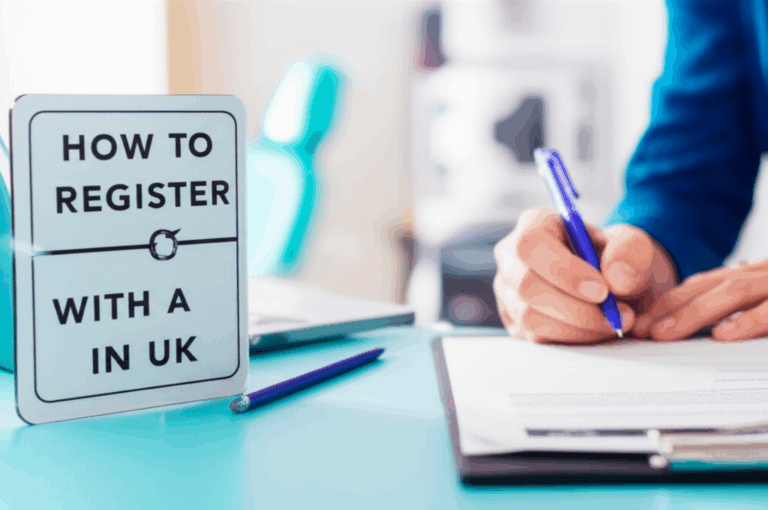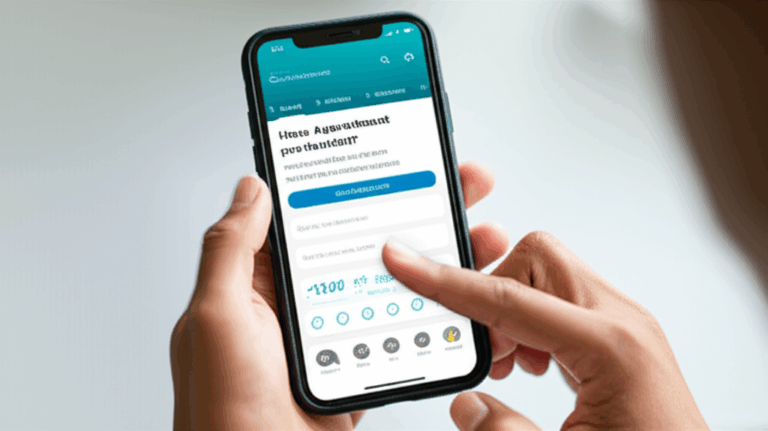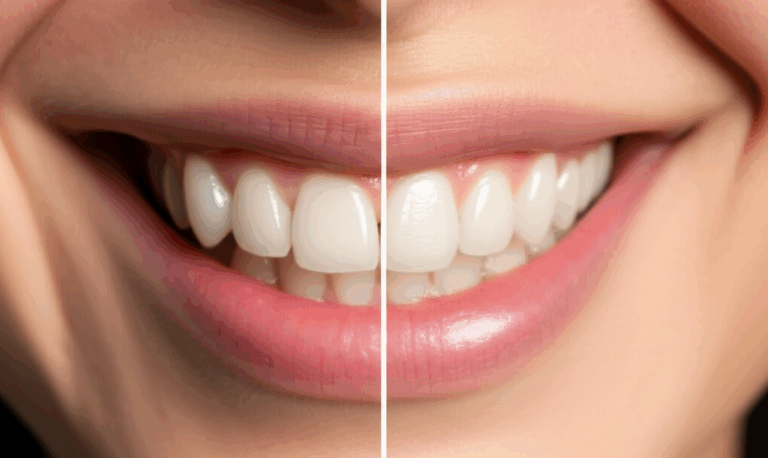
How to Get Rid of Facial Numbness from the Dentist: Causes, Treatments & Recovery
Feeling numb in your face after a dental visit? You’re not alone. This article shows you why numbness can happen, when to worry, how to ease it, and what steps to take for a safe recovery. Read on to find real answers, simple solutions, and the support you need.
Table of Contents
What Is Facial Numbness After the Dentist?
Let’s be honest—no one enjoys that funny, floppy feeling in your lip or cheek after sitting in the dentist’s office. Most people know numbness is something normal from local numbing shots, like Lidocaine or Articaine. Dentists use these drugs (called local anesthetics) to stop pain during things like fillings, root canals, or pulling teeth.
But sometimes, the numbness hangs around longer than you hoped. It can make your lip, chin, cheek, tongue, or even half your face feel weird. This feeling—or loss of feeling!—can go from a little tingle to totally numb, which is called paresthesia. In rare cases, the numbness turns into burning pain (dysesthesia) or lasts way longer than you expect.
No matter if your numbness is just a short annoyance or a problem that sticks around, knowing why it happens is the first step to feeling better.
Why Does Dental Numbness Happen?
Dental numbness usually happens because a local numbing shot blocks one or more facial nerves, especially the inferior alveolar nerve (IAN), lingual nerve (LN), or mental nerve. Here’s how and why it happens:
Your dentist gives you a numbing shot to stop pain messages in your nerves. For most people, when the drug wears off, your feeling comes back after two to four hours. Think of it like hitting a pause button for pain.
Sometimes things don’t go as planned. Here are the usual causes:
- Direct Nerve Bump: The needle might touch the nerve by accident.
- Surgical Bump: Pulling wisdom teeth, putting in implants, or root canal work can hurt or stretch nerves.
- Nerve Pressure: After dental surgery, swelling or a small blood clot (hematoma) can push on a nerve.
- Toxic Reaction to Numbing Drug: Rarely, some people’s nerves are extra sensitive to certain medicines.
- Dental Tool Pressure: Dental implants and crowns made in a dental ceramics lab or similar lab sometimes press too close to the nerve.
Check out how the main dental nerves match up to the feeling in your face:
| Nerve Name | Area of Facial Sensation | How It Gets Hurt |
|---|---|---|
| Inferior Alveolar Nerve (IAN) | Lower lip, chin, lower teeth | Wisdom tooth pulling, numbing shot, jaw surgery |
| Lingual Nerve (LN) | Side of tongue, taste | Back tooth pulling, implant surgery |
| Mental Nerve | Chin, lower lip | Dental implant near lower jaw |
| Buccal Nerve | Cheek area | Back tooth pulling, injury |
How Long Should Numbness Last After Dental Work?
Numbness from a shot should wear off in a couple hours—most times two to four. For bigger jobs like wisdom tooth pulling, you may still feel lip or chin numbness up to 24 hours, but that’s not usual.
If you still feel numb after 48 hours or notice tingling, taste is weird, or burning, it could mean something more serious. Here is a fast list:
- Normal: Numbness goes away after 2–4 hours.
- A Little Late: Some tingling might stay up to 12 hours after big dental work.
- A Concern: Lasts longer than a day or comes along with pain, weakness, or trouble moving your mouth.
Tip: If you feel numb in other spots or can’t breathe right, get help fast. That can mean a drug reaction or allergy.
Should You Worry About Prolonged Numbness?
Most people wonder about this. Here’s what to look for:
Signs You Shouldn’t Ignore
- Numbness still there after 24–48 hours.
- Weird feelings (buzzing, tingling, burning, or electrical zaps).
- Loss of taste on one side of your tongue.
- Trouble talking, chewing, or drooling by accident.
- Pain or swelling near your jaw or the work area.
- Upset or worried? It’s normal to worry or feel down if the numbness isn’t going away.
Why does it matter? Early help means the nerve could heal better. Most dentists say a referral to a crown and bridge lab or a specialist for tougher jobs can help prevent and fix problems.
What Steps Can You Take at Home for Facial Numbness?
While you wait for your feeling to come back, you can take a few simple steps:
Stay Safe
- Don’t chew on numb parts—you could bite your lip or tongue and not feel it.
- Stick with soft foods that don’t need hard chewing.
- Don’t drink hot stuff. You can easily burn yourself when you can’t feel temperature.
- Use a straw for cold drinks if your lips are droopy.
Help the Comfort
- Gentle jaw massages may help, but check with your dentist first.
- Put a cold pack on your cheek to bring down swelling.
- Watch yourself closely. Write down when the numbness started and if it’s changing. Notes help your dentist know your story.
Most of the time, nerves just need a little time. Most “dental nerve injuries” get better on their own in a few days to months.
What Are the Treatments for Dental Nerve Injuries?
If the numbness stays or causes trouble, there is still hope. Dentists and specialists have some ways to help:
1. Just Waiting and Watching
Most cases get better with time. Nerves heal, but it can be slow, sometimes many months. Regular checks with your dentist are important.
2. Medicines to Help Healing
- Anti-inflammatories (like ibuprofen, steroids): Lower swelling and help you feel better.
- Medicines for nerve pain (Gabapentin, Amitriptyline, etc.): Used if you get burning or tingling pain.
- Vitamins for nerves (B1, B6, B12, Alpha-Lipoic Acid): Not a magic fix, but often given to support healing.
3. Therapy and Stimulation
- Mouth and face exercises: If your mouth muscles feel weak.
- TENS unit (small electrical pad): Might help with pain and boost nerves, but only with a doctor’s advice.
4. Advanced Help or Surgery
If numbness won’t go away after a few months, your dentist might:
- Send you for tests (MRI, nerve study).
- Send you to an Oral & Maxillofacial Surgeon who knows nerves well.
- In very rare, bad cases, small nerve surgery may be possible. Surgery works best if done in the first 6–9 months after injury.
For those getting dental implants or big repairs, working with a china dental lab can help make sure your teeth fit right and stop problems later.
How Does Recovery Look for Nerve Injuries?
It’s helpful to know what to expect. Many people get better, but it takes different times for different people:
How Healing Goes
- Minor injuries: Feeling comes back in a few days to 4–6 weeks. About 90% heal within nine months.
- Serious injuries: Can take six months to a year, and about 10–15% may have a little numb feeling forever.
- Full return to normal isn’t always possible with big nerve damage, but therapy and sometimes surgery can help.
What Changes Healing Time?
- Your age: Younger people’s nerves heal quicker.
- Type of injury: A bruised nerve is faster to heal than a cut nerve.
- Early treatment: Quick visits to a specialist help.
- Overall health: Eating healthy and not smoking make a big difference.
Table: How Often and How Fast Dental Nerve Injuries Heal
| Type of Injury | Chance of Healing | How Long Does It Take |
|---|---|---|
| Mild/Neurapraxia | 85–90% | 6–9 months |
| Severe/Big injury | 60–70% | 1 year or more |
| Never goes away (rare) | 10–15% | Lasts forever |
Can Facial Numbness Be Prevented?
Here’s the good news—while you can’t stop every case, you can lower your chance by:
- Talking to your dentist about shot options and your past numbness.
- Picking a skilled dentist or surgeon for big jobs like implants or wisdom teeth.
- Ask about nerve pictures or 3D scans before big work. Some up-to-date 3d dental labs have special ways to plan better and avoid nerve problems.
When you work together with your dental team, you can avoid lots of surprises.
When Should You Seek Help from a Specialist?
Most facial numbness fades away—so you don’t usually need a specialist. But here’s when to get extra help:
- Numbness stays more than 48 hours
- Pain, tingling, or burning keeps getting worse
- You can’t taste or your words slur after 24 hours
- You can’t chew, talk, or swallow right
- You feel sad, scared, or upset
Start by seeing the dentist who did your dental work. They can check you and, if needed, send you to an Oral and Maxillofacial Surgeon or a nerve doctor. These experts may use tests like an MRI or nerve study to see what’s going on.
Your Top Questions Answered (FAQ)
Q: Can dental numbness last forever?
A: It’s rare, but in some deep injuries, mostly after tricky wisdom tooth or implant work, it can. That’s why follow-ups are important.
Q: Do vitamins work?
A: B vitamins and alpha-lipoic acid are thought to help nerves. Some people notice a bit of help, others not so much.
Q: How do I make the numbness go away sooner?
A: Time is the best answer. Healthy food and not smoking can help nerves heal faster.
Q: What if I have numbness and jaw pain or swelling too?
A: It could be from swelling or even an infection. Go see your dentist soon.
Q: Can numbness come back after it gets better?
A: That almost never happens. Once nerves recover, they usually stay better unless there is another injury.
Summary: Key Points to Remember
- Numb face after dental work is super common and usually goes away after a few hours.
- If numbness stays, hurts, or feels weird, tell your dentist quickly.
- Most small nerve issues heal by themselves, but some need medicine, therapy, or even surgery.
- Picking a good dental team and modern lab can prevent lots of trouble.
- Be watchful, but don’t worry—most folks heal up and get back to normal.
When in doubt, always check with your dentist for personal help.
References:
- Renton, T. et al., “Inferior alveolar nerve injury,” British Dental Journal.
- Denio, D. et al., “Surgical anatomy of the inferior alveolar nerve,” Oral Surgery Oral Medicine Oral Pathology.
- American Dental Association (ADA) official guidelines.
- Clinical experience and patient feedback from leading china dental lab.
- National Institutes of Health (NIH), “Nerve Injury and Recovery.”
For more info and the latest solutions, think about checking out reliable dental ceramics laboratories, modern implant dental labs, and 3D experts at 3d dental labs.








